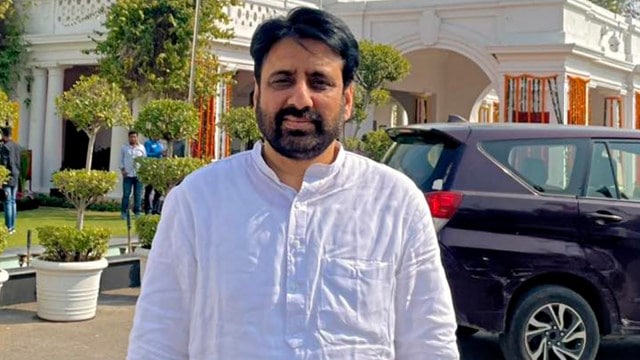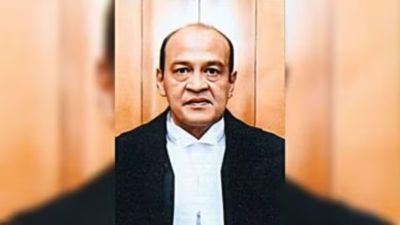Waqf Board corruption case: Delhi court orders framing of charges against AAP MLA Amanatullah Khan, 10 others
The case pertains to alleged irregularities committed during Khan’s tenure as chairman of the Board between 2016 and 2021.
 Aam Aadmi Party (AAP) MLA Amanatullah Khan. (Source: Facebook)
Aam Aadmi Party (AAP) MLA Amanatullah Khan. (Source: Facebook)A Delhi court Monday ordered the framing of charges against Aam Aadmi Party’s Okhla MLA Amanatullah Khan and 10 others in relation to the Delhi Waqf Board corruption case.
The case pertains to alleged irregularities committed during Khan’s tenure as chairman of the Board between 2016 and 2021.
Special Judge Dig Vinay Singh of Rouse Avenue Court said in his order, “In the present case, the accused individuals demonstrated a mutual understanding regarding illegal appointments of A-2 to A-11, for which public servants would be liable for criminal misconduct, an offence evident from their conduct as discussed above. This strongly suggests that a criminal conspiracy existed prima facie.”
The court ordered that charges be framed against the accused persons under sections of the Prevention of Corruption Act and criminal conspiracy.
“In this case, the facts presented strongly indicate that A-1 to A-11 were actively involved in the conspiracy to first appoint A-2 and subsequently A-3 to A-11,” the judge added.
According to the CBI, Khan had illegally appointed members to the board, causing a loss to the exchequer. It was argued by the agency that he himself was appointed as chairperson on March 12, 2016, illegally without placing the matter before the L-G.
In conspiracy with Mahboob Alam (A-2), the CBI claimed that Khan got 9 others appointed illegally as well. Alam was appointed as the CEO by “bypassing standard procedures and legal requirements, against the rules and norms”, the CBI claimed.
As per the agency, Alam and Khan colluded and appointed 9 others to various positions on the Waqf Board “against all rules and norms”. Many of the accused persons appointed were either relatives of Khan or known to him, claimed the CBI.
“Regarding accused… their respective roles, as outlined earlier, clearly indicate their involvement in a conspiracy to appoint A-2 and A-3. Their actions in manipulating the interview process demonstrate a conspiracy with individuals A-4 to A-11 to secure appointments unlawfully,” the court said.
“The fact that A-4 to A-11 obtained appointments despite many of them not submitting applications within the stipulated timeframe, failing to specify the post they applied for, receiving interview calls without formal notifications… along with their acquaintance and relationships to A-1, suggests a collusion between them,” it added.












